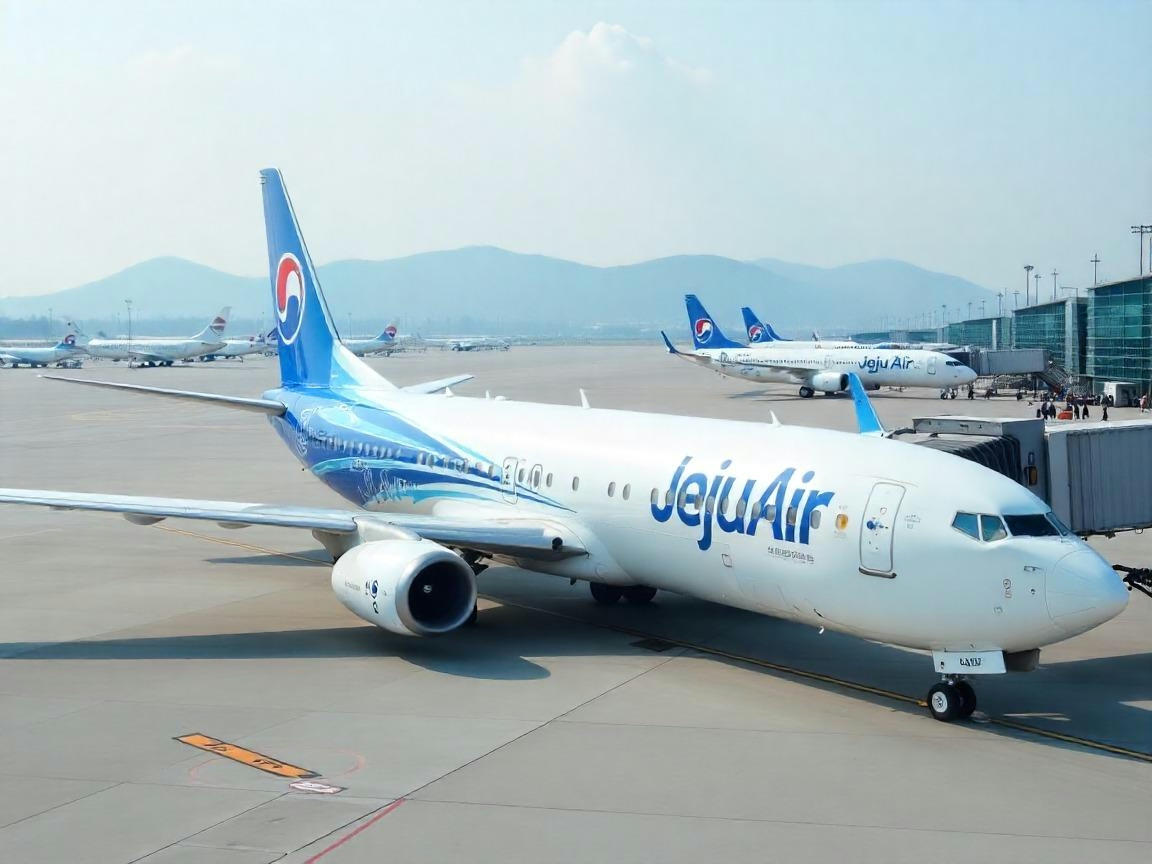AeroGenie — Your Intelligent Copilot.
Trending
Categories
Jeju Air Reallocates Engines from Stored Boeing 737 Freighters

Jeju Air Reallocates Engines from Stored Boeing 737 Freighters Amid Strategic Shift
Jeju Air, the South Korean low-cost carrier, has removed engines from its two stored Boeing 737-800 freighter aircraft and reassigned them to its passenger fleet, confirming a report by The Economist Korea. Both the freighter and passenger variants utilize CFM International CFM56 engines, facilitating this transfer. A spokesperson for Jeju Air explained that the engines were removed because the airline is not currently operating dedicated cargo aircraft, stating, “There is no need to keep the unused engine attached to the aircraft.” The airline emphasized that the engines remain available for reinstallation should cargo operations resume, noting that the future of its dedicated cargo business remains undecided.
Suspension of Freighter Operations and Fleet Status
Jeju Air has not operated dedicated cargo flights since a fatal crash in December 2024, after which it suspended all freighter operations until at least March 2025, citing a renewed focus on passenger safety. The airline continues to transport cargo in the belly holds of its passenger aircraft but has stepped back from dedicated freighter services. According to fleet data, Jeju Air operates two Boeing 737-800 Boeing Converted Freighters (BCF), registered HL8295 and HL8527, both leased from Aviator Capital. HL8295 has been stored at Seoul Gimpo Airport since August 2024, while HL8527 has been inactive since February 2025 and stored at Seoul Incheon Airport since late September. The carrier’s passenger fleet comprises thirty-six Boeing 737-800s, three of which are currently inactive, alongside eight Boeing 737-8s powered by CFM International LEAP-1B engines.
Market Context and Industry Challenges
Jeju Air’s decision to reallocate engines occurs amid broader uncertainty in the cargo conversion market. The certification process for the Boeing 737-900ER freighter conversion program, led by Aeronautical Engineers, is not expected to conclude until 2029. This delay, coupled with Boeing’s recent $5.3 billion third-quarter loss—attributed to setbacks with the 777-9 program and ongoing issues with the 737 Max series—has intensified scrutiny over the financial viability of freighter conversions. Meanwhile, the competitive landscape is evolving. In October 2025, Airbus’s A320 series surpassed the Boeing 737 as the most frequently delivered commercial jet, a milestone driven by Airbus’s adaptable models and Boeing’s manufacturing challenges. Other carriers, including Wizz Air, are also reassessing their fleet expansion and operational strategies in response to these shifting market dynamics.
As Jeju Air evaluates its next steps, industry observers will be closely monitoring how the airline and its competitors adapt to the changing demands of both passenger and cargo aviation sectors.

Emirates Unveils Cabin Design for New Boeing 777X

Eighteen Years On, the Airbus A380 Remains Central to a $34 Billion Airline

How a boom in luxury airline seats is slowing down jet deliveries

Navitaire Outage Attributed to Planned Maintenance

DigiYatra Debuts Outside Aviation at India AI Impact Summit

Vietnam Orders Strengthen Boeing’s Commercial Outlook

Airbus Signals Uncertainty Over Future A400M Orders

JobsOhio Awards $2 Million Grant to Hartzell Propeller for Innovation Center

Collins Aerospace Tests Sidekick Autonomy Software on YFQ-42A for U.S. Air Force CCA Program

How the Airbus A350-1000 Compares to the Boeing 777
